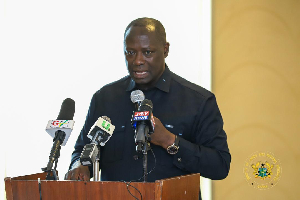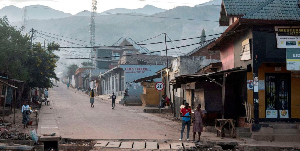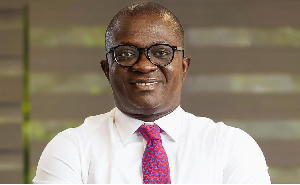- The Global Technology Academy?s Way
Last week, the World Economic Forum ranked Ghana 65th on its Networked Readiness Index of 104 countries. Ghana had moved from 74th place to the current position in a year. The index measures the propensity for countries to exploit the opportunities offered by ICT.But the road to the top won?t be easy for Ghana. Only half a million of Ghana?s Twenty million people are active computer users. The country?s Universities produce an average 300 Computer Science and Engineers most of whom until recently, received computer tuition on black boards with a limited number of annoyingly slow computers. In order to close Ghana?s digital divide by a little margin, it is estimated that 1 million personnel have to be trained and an additional 1 million PCs and 1 million telephone lines have to be in place. A total of US$2 billion stares us in the face in a country whose annual turnover is about $1 billion. Meanwhile, The Times says about 130,000 PCs are replaced every day in America alone, and only a tenth or so get recycled. Governments in Europe and America are beginning to regulate computer companies by slapping taxes in order to deal with the danger the industry?s waste poses to the environmen! t. But once recycled, they will be of use to poor developing countries such as Ghana whose new educational reforms envision an entrepreneurial-based curriculum based on Information, Communication and Technology.
The Global Technology Academy (GTA), a non-profit international organization based in the United States has since April 2004 been helping Ghana to expand its potential knowledge economy base by refurbishing used computers and sending them over to be put in schools. So far GTA has sent over 500 computers to Ghana?s Ministry of Education to distribute. This April will be the group?s fourth visit to Ghana and their nineteenth international project. GTA plans to build two refurbishing centers in Kumasi and Takoradi that will complement the one in Accra, Ghana?s capital. Collectively, it is to be called the Ghana Technology Academy with the capacity to refurbish thousands of used computers annually in addition to training and certifying teachers and students.
Kjell Rye, GTA President, stated, ?Ghana has the potential to fill its ICT needs through its own refurbishing of used computers. In the near future, they have the possibility of become a net exporter of refurbished computers to the rest of Africa. This may be the opportunity that Ghana needs emulate what the India, Ireland and Israel have done to bridge their digital divide by themselves.?
GTA has earned international recognition including that of Microsoft for working closely with its Partners for Learning programme. Last May, Microsoft Chairman Bill Gates, awarded GTA the first ever Digital Inclusion Award. Maggie Wilderotter, Microsoft Senior Vice President, World Wide Public Sector, wrote, ?GTA is designed to not only provide reconditioned computers to needy organizations, but also to teach those organizations to maintain the new computer lab and to continue to recondition more computers. The goal is complete technological independence for the developing nation partner.? !
This summer will be big for GTA in Ghana. It plans to refurbish over 1,000 computers and monitors over a ten-week period by a team of 120 teachers and students from 24 different schools in six regions of Ghana, all three northern regions inclusive. Specific training includes computer hardware refurbishing including initial testing of all components, computer BIOS configuration, software installation and computer labs set up, develop instructions on computer maintenance and develop a curriculum for teaching IT in Ghanaian schools. By the group?s estimation, overall cost per computer including training, refurbishing, buying new components, network equipment, lab set up and all other costs is US$175 per computer, which is less than the street value of a Pentium III and in some cases Pentium II in Ghana. GTA however provides all the computers for free. But it awaits the marked political will that will match its support for Ghana. Time is not on Ghana?s side as GTA has become overwhelmed with international requests to do similar projects. Invitations have been received from the Philippines, Russia and Kenya for the summer.! ar Ms Elizabeth Ohene, Ghana?s Deputy Minister of Education knows the value of GTA?s projects to Ghana. She committed Ghana?s involvement when she said to the team ?With knowledge in computer literacy people and students in the villages could easily make contacts with the world community and find new approaches and initiatives to improve and add value to their businesses, carry out research or apply to schools that answer their career needs?. Ghana?s Vice-President knew this when he said during the commissioning of GTA?s first Refurbishing centre ?In today?s world, those who fail to join the process risk extinction?.
Mr. Franklin Cudjoe, GTA Representative in Ghana and Director of Imani: The Centre for Humane Education, a market-oriented think tank in Ghana believes that it is time to close the gap between all the lofty ideas discussed at Information and communication summits and the target beneficiaries. That is what gives real hope to the many disenfranchised youth in digitally skewed communities such as found in Ghana. 
Views expressed by the author(s) do not necessarily reflect those of GhanaHomePage.

Views expressed by the author(s) do not necessarily reflect those of GhanaHomePage.














